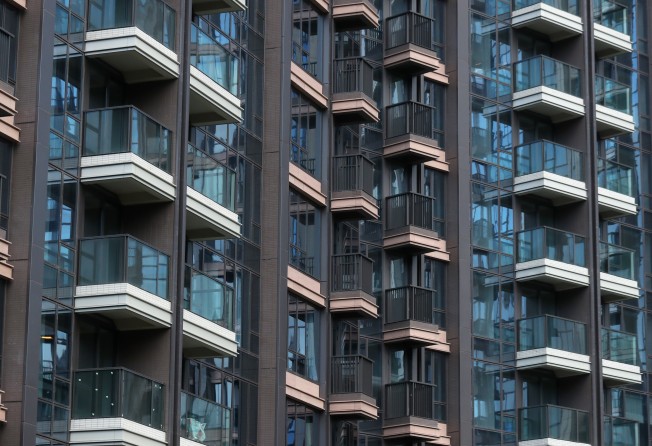Top advisers approve proposals for vacancy tax and more affordable flats to help ease Hong Kong’s housing crisis
Proposed vacancy tax to be twice the estimated annual rental value of a flat

Hong Kong’s flat-hoarding developers are set to face an annual vacancy tax amounting to double a property’s annual rental income, after the city’s top advisory body on Thursday endorsed a basket of new measures aimed at easing the housing crisis.
At a special meeting chaired by Chief Executive Carrie Lam Cheng Yuet-ngor, the Executive Council approved proposals that included: introducing a vacancy tax on newly built flats remaining unsold; unlinking the pricing of government-subsidised housing from private market rates; and building affordable housing on at least six prime sites originally reserved for private developers to construct luxury homes.
With developers worried about the vacancy tax, the property index on the city’s Hang Seng benchmark fell as much as 1.3 per cent in an otherwise rising market, before recovering slightly to close Thursday 0.4 per cent lower than the day before.
Details of the proposed policy changes will be announced on Friday even as property prices continue to soar – for 25 straight months as of the end of April – feeding public anger in the world’s least affordable market to buy a home.
Under intense pressure to provide short-term relief while seeking longer-term solutions, the government has invited public feedback on 18 proposals to plug a projected shortage of 1,200 hectares of land for housing and economic development in the next three decades. But even the quickest proposals may only yield results in about a decade.
A source familiar with the issue said the proposed vacancy tax would be twice the rateable value of a home. The rateable value is the estimated annual rental value of a flat, calculated by government specialists and based on market rates.
All new flats that have been left unsold for at least a year will be subject to the tax, according to the source.
Developers opposing the tax have been urging the government to define the term “vacant” as being left unsold for one year after obtaining a certificate of compliance, rather than after getting an occupation permit.
They have to meet a deadline for obtaining an occupation permit, which allows buyers to move in, but there is no deadline for getting a certificate of compliance, which marks the genuine completion of a development, including finished peripheral works such as greening, building footbridges and furnishing open spaces.
“We understand the government’s determination to launch the tax and we will try to cooperate,” said Stewart Leung Chi-kin, chairman of the Real Estate Developers Association’s executive committee. “We hope the government can be reasonable.”
But concerns have been raised that if the government gives in to their demands, developers can potentially abuse the system by taking as long as possible to finish projects, leading to de facto hoarding.
“It is expected that the government will not accept developers’ demands,” the source said. “But details still need to be discussed in the Legislative Council.”
Leung said association members would hold a meeting to discuss their next step when the tax was officially announced.
Marcellus Wong Yui-keung, a member of the previous government’s Working Group on Long-Term Fiscal Planning, said the tax would amount to about 5 per cent of a flat’s value a year, assuming an annual rental yield of about 2.5 per cent of the flat’s selling price.
“This is just about hurting,” Wong said.
The effectiveness of the tax would depend on whether developers believed the market would keep rising at a rate of more than 5 per cent a year, he added, suggesting the new tax rate be flexible based on market outlook.
In June, Victoria Harbour, a luxury residential project developed by Sun Hung Kai, sold a 1,599 sq ft flat for HK$83 million, or HK$52,024 per square feet. With a 2 per cent yield, the estimated vacancy tax for such a luxury home would be HK$3.33 million.
As for building more affordable housing, the source said the government had identified three sites at the Kai Tak new development area and more than three sites on Anderson Road in Kwun Tong, which were originally reserved for private developers.
The source said the Housing Authority, which scrutinises policies related to public-sector housing, would on Friday discuss unlinking subsidised housing prices from market rates.
As applications were already closed for the latest batch of subsidised flats to be sold, the source said, the authority would also discuss whether it should reopen applications if the new pricing mechanism was adopted.